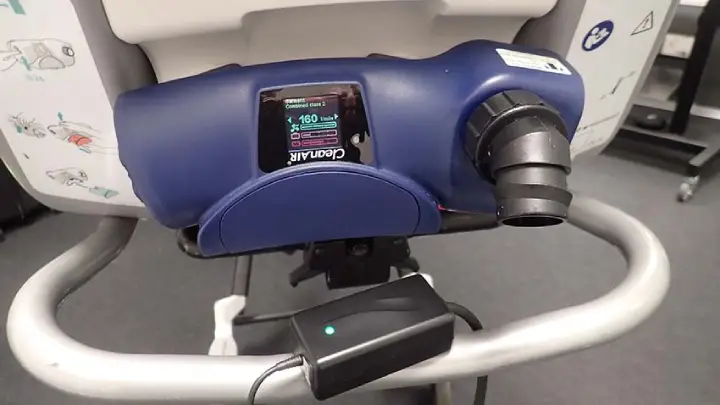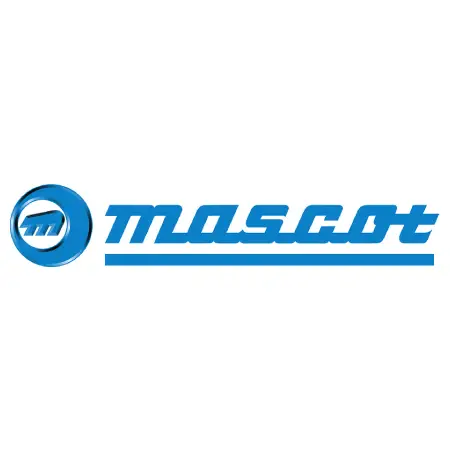Mascot 2240 LI Battery Charger: EpiShuttle's Safety Boost
Insights | 13-11-2023 | By Mascot
In the realm of healthcare, the reliability of power solutions is not just a matter of convenience but a critical component of patient safety and care, especially in challenging and unpredictable environments. The advent of the EpiShuttle, developed by Norwegian company EpiGuard, marks a significant leap forward in this domain. This innovative isolation unit is designed for the safe and efficient transport of highly contagious patients, addressing a crucial need in both civilian and military healthcare scenarios. At the heart of the EpiShuttle's operational efficacy is the advanced battery charging technology provided by Mascot, a pioneer in power solutions. Mascot's cutting-edge lithium-ion battery charging technology plays a pivotal role in ensuring the EpiShuttle functions reliably, even in the most demanding situations, thereby safeguarding patients and healthcare providers alike.
The EpiShuttle – A Revolution in Patient Transport
In the face of global health challenges, particularly the transportation of patients with infectious diseases, the healthcare sector has been in dire need of innovative solutions. Traditional patient transport methods often fall short in ensuring the safety and isolation necessary in such cases. Enter the EpiShuttle: a groundbreaking development by EpiGuard that revolutionises the way patients are transported. Designed to meet the rigorous demands of modern healthcare, the EpiShuttle provides a safe, secure, and isolated environment for patients, ensuring that the risk of infection spread is minimised. This innovation is not just a step forward; it's a leap towards a safer, more efficient way of handling patient transport in situations where contamination control is paramount.

Design, Functionality, and Application in Various Scenarios
The EpiShuttle is not just a product of innovative engineering but also a testament to thoughtful design, prioritising patient safety and comfort. Its robust structure is specifically tailored to create a secure and isolated environment for patients. Key to its design is the transparent barrier, which allows for constant patient monitoring while preventing any risk of cross-infection. The EpiShuttle adheres to stringent medical standards, being CE-marked as a Class 1 medical device and compliant with the EN 1789 standard. This compliance ensures that it can be safely used in a variety of settings, including ambulances and aircraft, without compromising on safety or functionality. The unit's design facilitates not only the safe transport of patients but also allows for essential medical procedures to be performed during transit, a critical feature in emergency medical care.
The EpiShuttle's versatility extends beyond its innovative design, proving itself invaluable in a variety of transport scenarios. In military contexts, it serves as a critical tool for safely evacuating infectious or wounded soldiers from field hospitals to more equipped medical facilities. Its robust design ensures that soldiers or civilians can be transported through contaminated or hazardous areas, including environments exposed to chemical, biological, radiological, or nuclear materials. In civilian applications, the EpiShuttle has transformed the way patients with highly infectious diseases are transported in settings like cruise ships and air ambulances. It eliminates the risk of cross-contamination, ensuring the safety of not only the patient but also the crew and other passengers. This adaptability makes the EpiShuttle an indispensable asset in both emergency response and routine patient transport, adapting seamlessly to the diverse needs of modern healthcare logistics.
Powering the EpiShuttle – The Role of Batteries
The efficacy of medical devices like the EpiShuttle hinges significantly on their power sources. In the high-stakes realm of healthcare, particularly in patient transport, the reliability of these power sources is non-negotiable. A consistent and dependable power supply is vital, not just for the operation of the device itself but also for ensuring uninterrupted patient care and safety. This is especially crucial in scenarios where external power sources are unreliable or unavailable, such as in remote areas or during emergency responses. The EpiShuttle's battery system, therefore, is not just a component; it's the lifeline that ensures its seamless functionality in diverse and often challenging environments. Understanding the role and importance of these batteries is key to appreciating the full capabilities and reliability of the EpiShuttle in critical patient transport situations.

Reliable Power: A Necessity in Medical Devices
The necessity for reliable power in medical devices cannot be overstated, particularly in the context of life-saving equipment like the EpiShuttle. Drawing insights from USAID's document on 'Powering Health: Batteries & Battery Management', it becomes clear that dependable power sources are the backbone of effective healthcare delivery, especially in areas with unstable or no electricity. In critical medical scenarios, the failure of a power source can mean the difference between life and death. This is why the EpiShuttle's battery system is designed to offer not just power, but assurance – assurance of continuity, safety, and effectiveness. The document further elaborates on the various challenges and solutions in battery management in healthcare settings, emphasising the need for batteries that are not only powerful but also sustainable and efficient. In essence, the right battery technology can significantly enhance the functionality and reliability of medical devices, making them fit for use in even the most demanding situations.
At the core of the EpiShuttle's reliable performance is Mascot's innovative battery solution – a 14.4V lithium-ion (Li-ion) battery charger. This battery is not just a power source; it's a meticulously engineered component that ensures the EpiShuttle operates at peak efficiency. Lithium-ion batteries, known for their high energy density and long life span, are particularly suited for medical applications like the EpiShuttle. They provide a stable and consistent power output, which is crucial in maintaining the functionality of life-saving equipment in various environments. Mascot's battery charger is designed to withstand the rigours of challenging scenarios, including fluctuating temperatures and pressures, making it an ideal choice for the EpiShuttle. Its robustness and reliability align perfectly with the needs of medical devices that are used in diverse and often unpredictable conditions, ensuring that the EpiShuttle remains operational and effective, regardless of the external circumstances.
Powering each EpiShuttle is a rechargeable 14.4V lithium-ion (Li-ion) battery, and the responsibility for keeping this charged has been handed to Mascot, a pioneer in electronics and a fellow Norwegian company. Founded in 1938, Mascot was the first in Norway to introduce car radios in 1953 and gained popularity for their superior reception not only in Norway but also in mountainous regions across Europe and the Near and Middle East. In the early 1960s, Mascot expanded its reach by setting up a manufacturing joint venture in Turkey to meet the growing communications demand in the region.
Mascot’s solution for delivering sustainable and reliable power to the EpiShuttle is the 2240 LI charger, medically certified to EN 60601-1 ed 3.1 and EMC: EN 60601-1-2 ed 4. This charger, used successfully in a broad spectrum of medical applications, has proved ideal for operating without compromise at high altitudes. All Mascot 2240 products are tested and checked for their ability to operate at atmospheric pressures between 70kPA and 106kPA, complying with the ISO 7000-2621 atmospheric pressure limitation standard. In designing the EpiShuttle, EpiGuard recognised the essential need to eliminate any risk of patients infecting others they may come into contact with, whether medical staff, transport staff, or members of the public, as well as being affected themselves by contracting other conditions. Dependable and consistent power is vital in the medical applications for which the EpiShuttle is required, and the Mascot 2240 combines reliability with speed and performance across all environments.
Advancements in Battery Technology for Healthcare
The landscape of battery technology is rapidly evolving, bringing transformative changes to the healthcare sector. This evolution is not just about incremental improvements; it's about significant leaps that redefine how medical devices operate and interact in healthcare environments. Modern battery technologies, such as lithium-ion batteries used in the EpiShuttle, are at the forefront of this transformation. They offer higher efficiency, longer life spans, and greater reliability compared to traditional battery types. This advancement in battery technology is crucial for medical devices, as it directly impacts their performance, safety, and the overall quality of patient care. As we delve deeper into this topic, it becomes evident that these technological strides are not just enhancing existing medical devices but are also paving the way for new innovations in patient care and medical logistics.
Types of Batteries and Their Applications
The realm of healthcare utilises a variety of battery types, each with its specific applications and advantages. As outlined in USAID's document on 'Powering Health: Batteries & Battery Management', the most commonly used types in healthcare settings include lead-acid and lithium-ion batteries. Lead-acid batteries, known for their cost-effectiveness and reliability, are often used in stationary applications like emergency power systems in hospitals. On the other hand, lithium-ion batteries, with their higher energy density and longer lifespan, are increasingly favoured in portable medical devices. These batteries are ideal for equipment like the EpiShuttle, where consistent power delivery and lightweight characteristics are essential. The choice of battery type depends on various factors, including the device's power requirements, operational environment, and the need for portability. This diversity in battery technology not only provides flexibility in healthcare applications but also ensures that medical devices can function optimally in different scenarios, from routine care to emergency responses.
Maintenance, Sustainability, and Future Trends
The effective use of batteries in healthcare goes beyond their initial implementation; it also encompasses aspects of maintenance and sustainability. Proper battery maintenance is crucial for ensuring the longevity and reliability of medical devices. This involves regular checks, timely replacement, and proper disposal of used batteries, as emphasised in the USAID document on battery management. Sustainability in battery technology is another critical consideration, especially given the environmental impact of battery disposal. Advances in battery technology are increasingly focusing on eco-friendly options, reducing the carbon footprint of healthcare operations. Looking towards the future, we can anticipate further innovations in battery technology, such as the development of more efficient, durable, and environmentally friendly batteries. These advancements will not only enhance the performance of medical devices but also contribute to a more sustainable healthcare ecosystem. The future of battery technology in healthcare is poised to bring even more revolutionary changes, aligning with the global shift towards sustainable and efficient medical solutions.
Conclusion
The exploration of the EpiShuttle's role in healthcare underscores the critical importance of reliable battery technology in medical applications. As we have seen, the EpiShuttle represents a significant advancement in patient transport, offering safe and efficient solutions for moving highly infectious patients. This would not be possible without the power supplied by advanced battery charger's, such as those developed by Mascot. The reliability and efficiency of these batteries ensure that medical devices like the EpiShuttle can perform their life-saving functions without interruption, even in the most challenging environments.
Reflecting on the broader landscape of medical technology, it's evident that advancements like the EpiShuttle are reshaping healthcare delivery. They are not only improving patient care but also enhancing the safety and efficiency of healthcare operations. The ongoing evolution of battery technology plays a pivotal role in this transformation, offering more sustainable, efficient, and reliable power solutions. As we look to the future, the continued innovation in battery technology and its applications in healthcare promise to bring even more groundbreaking changes. These advancements will undoubtedly have far-reaching implications for patient care, further elevating the standards of healthcare delivery and patient safety.

